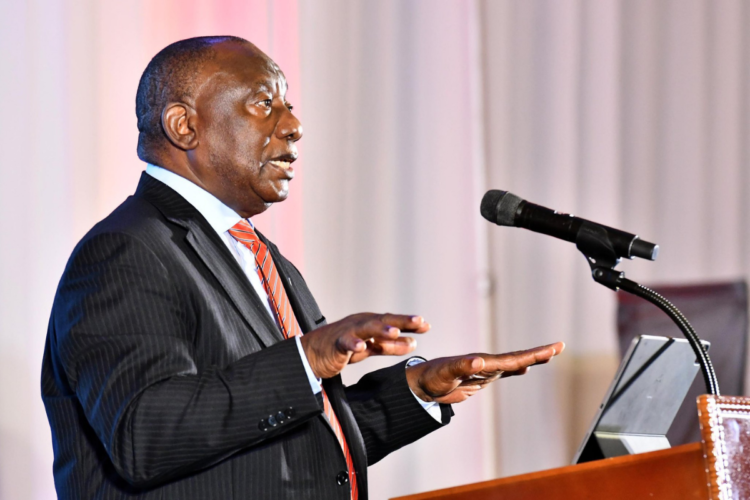PRESIDENT Cyril Ramaphosa has provided further details around the government’s planned District Development Model and how it will be implemented to improve the country’s municipalities.
Speaking at a South African Local Government Association (Salga) event on Wednesday, Ramaphosa said that only 5% of the country’s municipalities are financially stable. Several others are in financial distress, with insufficient revenue to meet their expenses.
“Some 64 municipalities are considered to be dysfunctional. This dysfunction is rooted in poor governance, weak institutional capacity, poor financial management, corruption and political instability.
“By June last year, some 26 municipalities had been placed under administration. This number has now risen to 31 municipalities under administration. We continue to hear about municipalities under threat of administration.”
Based on these failings, many residents have lost faith in the ability of local government to meet their needs, as have many investors, the president said.
Several municipalities have been successfully taken to court over their failure to deliver services, with the country’s courts ruling in favour of residents and businesses that want to take over these services themselves.
The president previously admitted that the growing number of such cases was proof that the government had failed at its job of delivering services.
The District Development Model aims to improve coordination between national, provincial and local governments, and between government and its social partners, Ramaphosa said.
“Through this model, we aim to energise our entire system of cooperative governance and bring coherence to planning and implementation. Once it is fully operational, we will know at all times what is needed, where it is needed, how it will be done, by whom and exactly how much it will cost.”
He added that the Department of Cooperative Governance, in partnership with several stakeholders, has been developing profiles for each of the country’s districts and metros.
“The profiles reveal the specific challenges and opportunities in these areas, such as gender composition, social infrastructure, the number of child-headed households, and levels of poverty and illiteracy. Having these profiles in hand, we are then able to develop an intergovernmental plan for each district or metro.
“Known as the ‘one plan’, this sets out a long-term strategic framework to guide investment and service delivery in the specific district or metro. Through these one plans, we are forging innovative partnerships with communities, businesses and other stakeholders to improve and accelerate the implementation of key development projects.”
Ramaphosa said that he also expects other legislative changes to help address problems at many of the country’s municipalities.
He pointed to the Municipal Structures Amendment Act, which came into effect on 1 November 2021, which introduces an enforceable revised code of conduct for councillors.
“This code introduces consequences for those who do not uphold and adhere to it. Our people will no longer accept poor performance, they want things done correctly and truthfully,” he said.
“To deliver on their responsibilities, municipalities must address poor revenue collection. Municipalities are owed billions by businesses, government entities and households for services rendered.”
- – BusinessTech



